Psoriasis and eczema are two separate skin conditions, yet, they share symptoms of dry, tight and itchy skin. Many people use products that go beyond their doctor-prescribed medications as a complementary method to manage the skin conditions. However, before considering any kind of treatment, it’s important to discuss it with your dermatologist and to try to learn more about the triggers of your psoriasis or eczema symptoms.
That said, here are 10 natural or home remedies that may help alleviate symptoms of these two skin conditions.
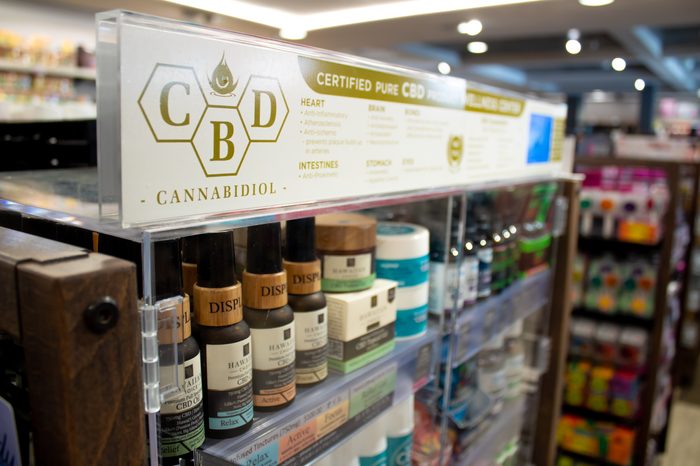
Apply: CBD-infused creams
Cannabidiol (CBD) skincare may help in the treatment of eczema and psoriasis. The skin has its own cannabinoid system, and topical CBD activates these receptors. A 2018 review in the Dermatology Online Journal suggests that topical CBD may help decrease inflammation and lessen the likelihood of flares, says Jeanette Jacknin, MD, a board-certified dermatologist with expertise in holistic dermatology and natural cosmeceuticals in Solana Beach, California. Although most research on CBD and skin diseases is pre-clinical and more research is needed, if you’re interested in CBD-infused skincare, look for a good quality brand that contains a high level of CBD. And if you’re looking for more information, here’s what you should know about using CBD for psoriasis.
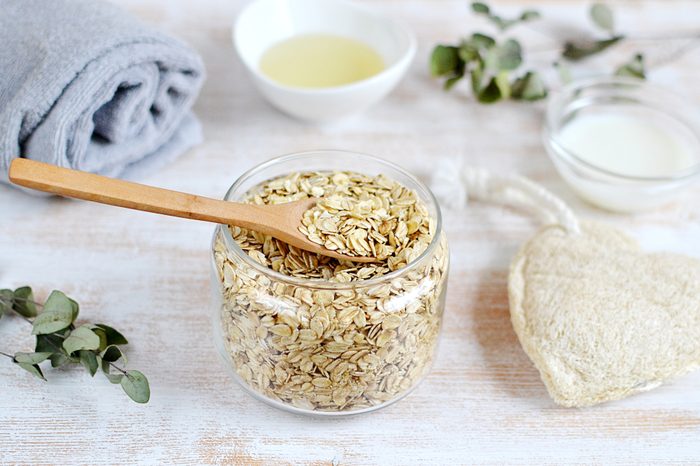
DIY: Oatmeal bath
Oatmeal baths are also well known for soothing itch. Grind plain oatmeal and add a cup of the fine powder to a lukewarm bath; soak for 15 minutes. Another option is to soak in dead sea salts, says Dr. Jacknin. According to a study in the International Journal of Dermatology, bathing in the salt solution is not only well-tolerated, but it may also improve skin barrier function and lead to a decrease in skin roughness and inflammation. Here are eight more home remedies for rashes your skin will thank you for.
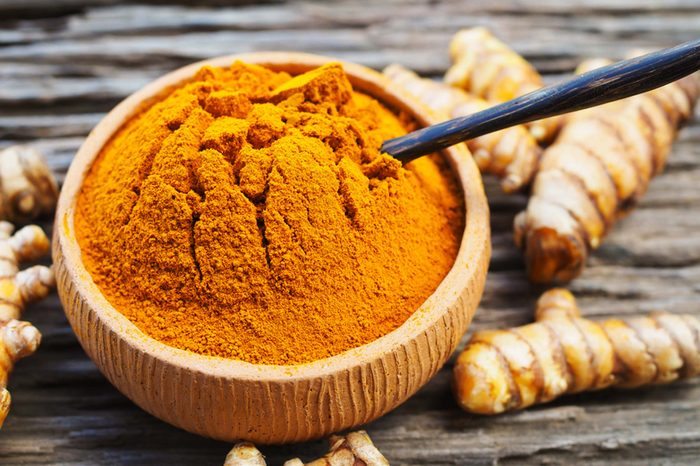
Eat: Turmeric
Many eczema treatments require topical care, but this one has more to do with what you ingest. Studies have linked the active compound in this spice, curcumin, to reduced inflammation in a number of skin conditions, including psoriasis. A 2015 randomized, double-blind, placebo-controlled clinical trial, published in BioMed Research International, compared treatment with a combination of topical steroids and a commercially available curcumin supplement with topical steroids alone in psoriasis patients. The researchers found the curcumin and topical steroid were more effective in treating psoriasis compared to a topical steroid alone after 12 weeks; those in the curcumin group also had lower levels of certain inflammatory markers.

Apply: Apple cider vinegar
Apple cider vinegar (ACV) has long been used to soothe skin inflammation and burns, and it is also an astringent. If you have psoriasis sores, apple cider vinegar may help ease itching and scaling, says Dr. Jacknin. (Do not use if you have open sores.) Add about a half-cup to a tubful of water. When it comes to eczema, you can apply witch hazel to a lesion; the witch hazel also has astringent properties that can help dry it out, she says. Here are the 13 ways apple cider vinegar may benefit your health.

Apply: Oil
Flax, hemp, or neem seed oil contain fatty acids that may help soothe psoriasis, according to Dr. Jacknin. “This is a nice thing to apply instead of scratching, which will only aggravate the area,” she says. Here are some other home remedies for dry hands.
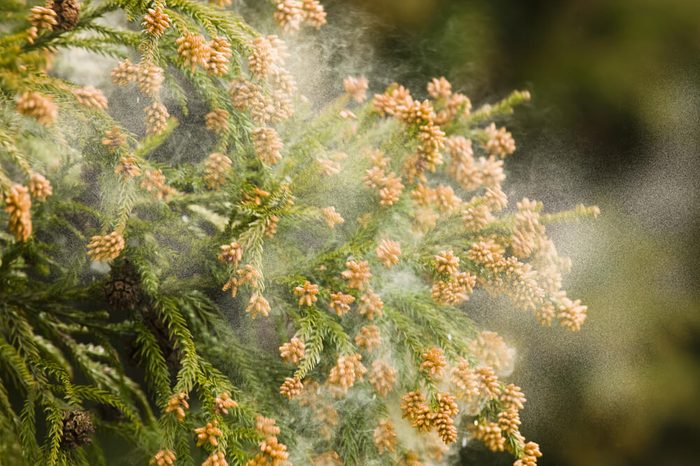
Avoid: Your triggers
There are many things in your environment that can trigger eczema flares, including outdoor allergens (like grasses), dust mites indoors, harsh chemicals like dyes and scents in detergents, and chemicals in water that you bathe in, says Dr. Jacknin. Do your best to decrease your exposure to these: Run the air conditioning (with a good filter) in the summer when the pollen count is high, use dust-mite resistant coverings on bedding and pillows, wash with free and clear detergents, and get a filter for shower water. (Here are 11 surprising triggers for spring allergies that aren’t pollen.)
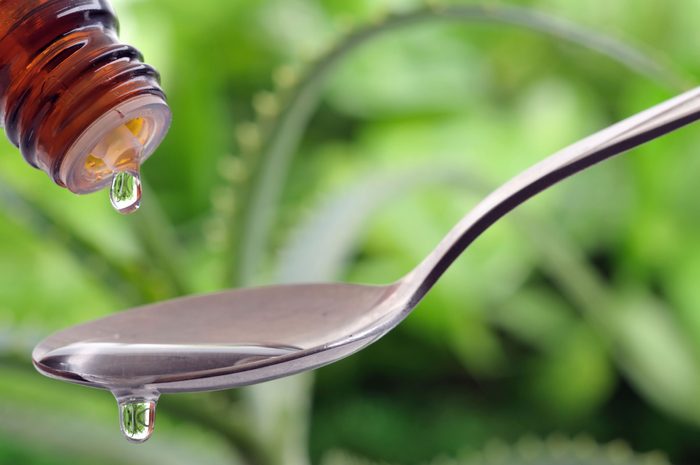
Apply: Essential oil
Add one or two drops of lavender or rose essential oil to a lukewarm bath, suggests Dr. Jacknin. Essential oils are blended with carrier oils before they’re applied to the skin because direct use onto the skin can cause irritation. According to Dr. Jacknin, you can dilute the oil with a carrier oil like jojoba, and apply the mixture directly to the skin. “This is very healing,” says Dr. Jacknin. (Here are 21 common reasons for an itchy scalp.)
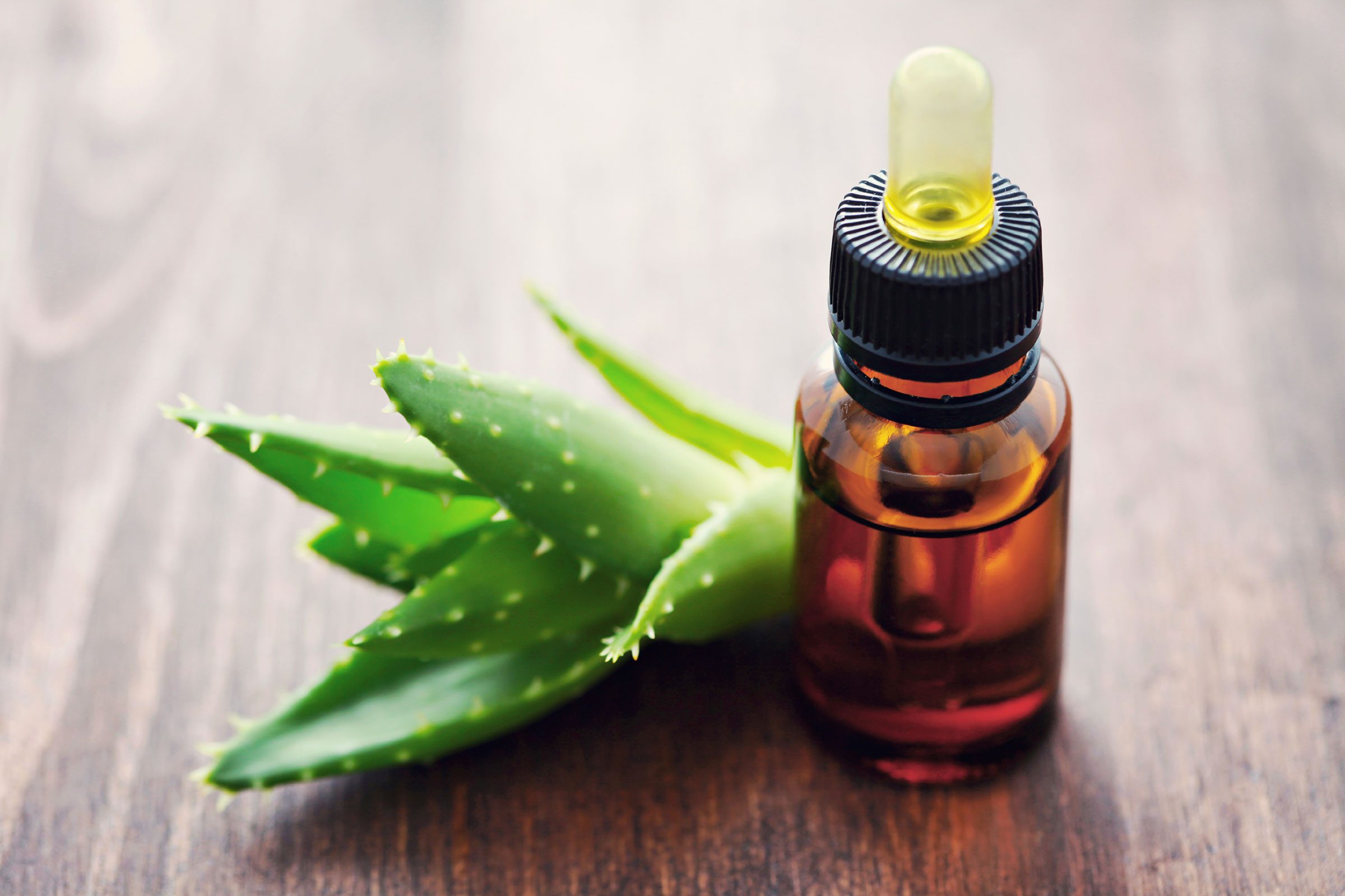
Apply: Aloe vera
Pure aloe vera gel is rich in anti-inflammatory and healing compounds and provides a nice cooling sensation for itchy skin. A 2018 study in Open Access Macedonian Journal of Medical Sciences found the use of a mixture in an ointment form of propolis (50 percent) and aloe vera (3 percent) led to noteworthy improvements in patients with mild to moderate psoriasis after 12 weeks compared to the placebo group. If you have psoriasis, specifically, aloe vera may help ease the discomfort of psoriatic lesions, says Dr. Jacknin. Pure aloe vera gel can also be found at most drug stores and health food stores.

Use: Tea
Part of reducing the chance of a flare-up is proper stress management, says Dr. Jacknin. Drinking calming teas before bed, like chamomile, lavender, and lemon balm can soothe your nervous system. You might also consider brewing the tea and, once cooled to lukewarm, using it as a warm compress on affected areas.
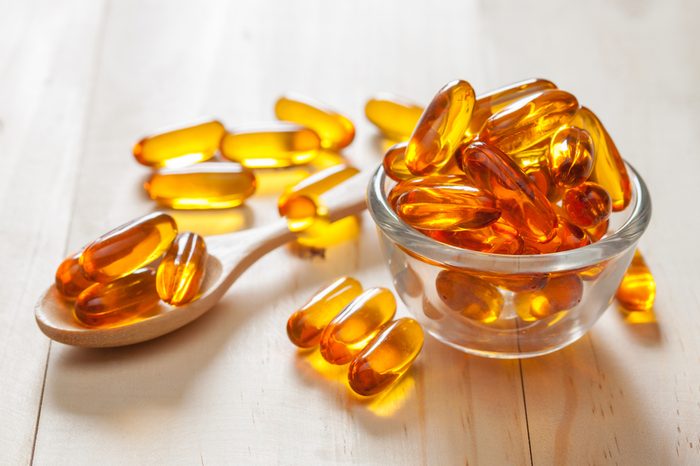
Eat: Fish oil
A 2016 study in Dermatology Practical & Conceptional has linked the omega-3 fatty acids in fish oil to improvement in eczema and psoriasis. While the nutrient may decrease inflammation, overall the data is promising—but limited. In lieu of popping supplements, eat whole food sources of these fatty acids, like salmon, sardines, and flax and hemp oil, says Dr. Jacknin. These are the eight best home remedies for itchy skin.